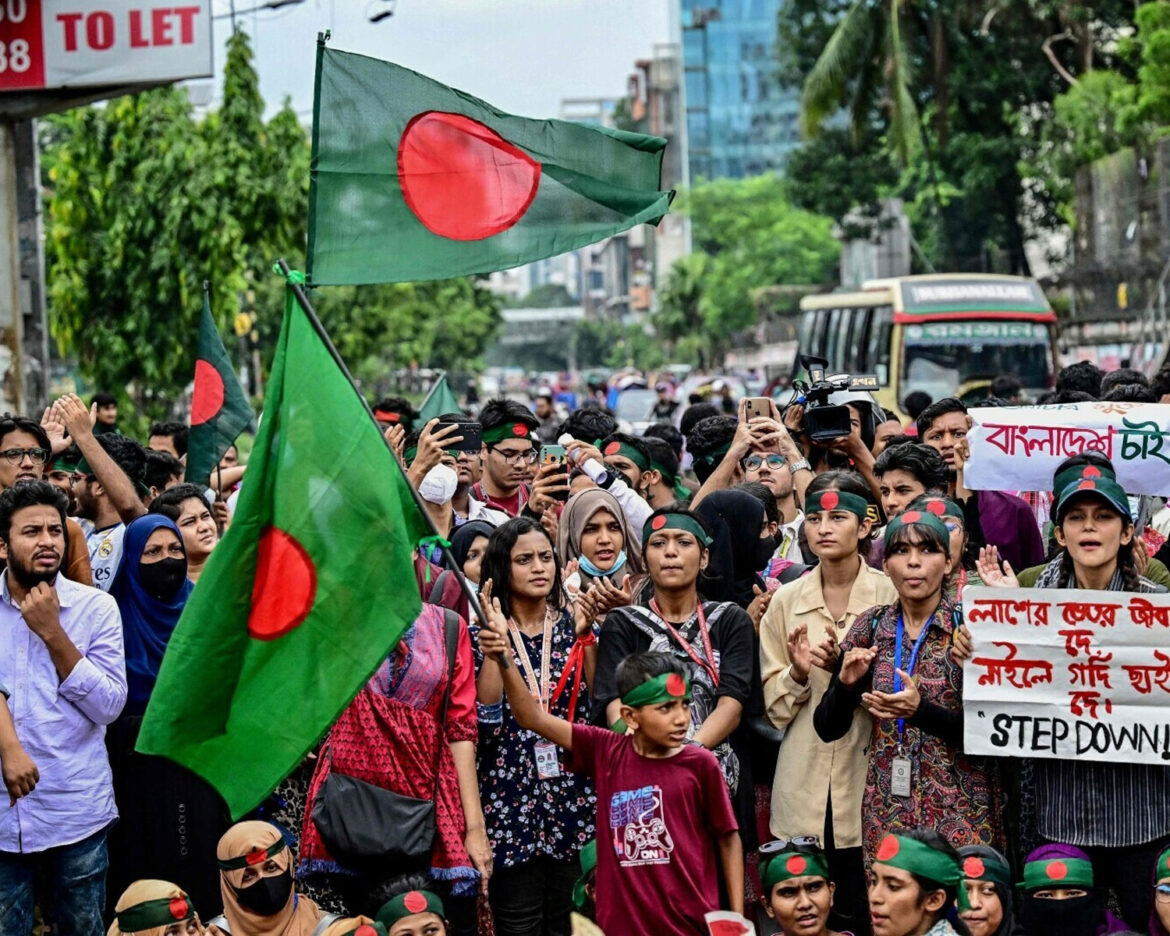DHAKA: In defiance of a nationwide curfew, students in Bangladesh have announced plans to carry out a protest march towards Dhaka, the country’s capital, on Monday, demanding Prime Minister Sheikh Hasina to step down. The announcement comes a day after deadly clashes that killed around 100 people in the South Asian nation.
The unrest, which began in July with student protests against the controversial quota system in government jobs, has escalated into a broader campaign against Hasina, who secured a fourth consecutive term in January’s election, boycotted by the opposition. Sunday’s violence, the deadliest in recent memory, saw at least 91 people killed and hundreds injured as police fired teargas and rubber bullets at tens of thousands of demonstrators. Among the casualties were 13 policemen.
In response, the government imposed a nationwide curfew starting at 6 PM local time on Sunday and announced a three-day general holiday beginning Monday. Additionally, the railways department suspended train services, and the country’s garment industry, a significant economic sector, shut down indefinitely.
Protest coordinator Asif Mahmud, in a statement on Facebook, called for mass mobilization towards Dhaka: “The government has killed many students. The time has come for the final answer. Everyone will come to Dhaka especially from the surrounding districts. Come to Dhaka and take a position on the streets.”
The Bangladesh army has urged compliance with the curfew, asserting its commitment to uphold the constitution and the law. “The Bangladesh army will perform its promised duty in line with the Bangladesh constitution and existing laws of the country,” it said in a statement, requesting public cooperation to maintain order and ensure the security of lives, properties, and important state establishments.
Violence over the weekend included attacks, vandalism, and arson targeting government buildings, ruling party offices, police stations, and residences of public representatives. Local media reported unrest in 39 of the country’s 64 districts.
Amidst the turmoil, the role of the army has come under scrutiny. The Bangladesh Railway suspended all services indefinitely due to escalating violence. The Bangladesh Garment Manufacturers and Exporters Association announced the closure of garment factories for worker safety.
The ongoing unrest, compounded by the government’s shutdown of internet services, poses the biggest challenge to Hasina’s 20-year rule. Critics and human rights groups accuse her government of using excessive force against protesters, a claim the government denies. For the second time during the protests, high-speed internet services have been shut down, with social media platforms like Facebook and WhatsApp becoming inaccessible.
The initial protests paused after the Supreme Court scrapped most of the quotas, but students resumed demonstrations last week, demanding justice for those killed and Hasina’s resignation. Hasina has labeled the protesters as terrorists aiming to destabilize the nation.
The army’s involvement has drawn calls from retired military officers for Hasina to withdraw troops and seek political solutions. Chief of Army Staff General Waker-Uz-Zaman stated that the army would continue to serve the people’s interests and address the state’s needs. He is scheduled to brief the media on Monday.



